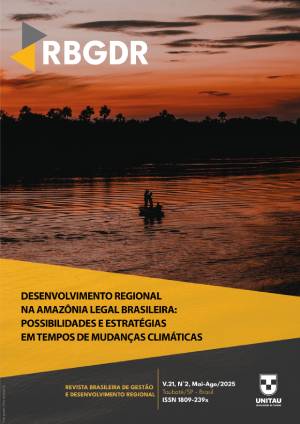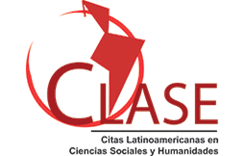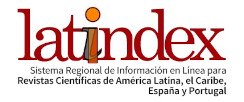FISH FARMING POLES AND SUSTAINABLE ECONOMIC DEVELOPMENT IN THE BRAZILIAN AMAZON
DOI:
https://doi.org/10.54399/rbgdr.v21i2.7792Palavras-chave:
Polos de crescimento, piscicultura, Amazônia brasileiraResumo
O conceito de “Polos de crescimento” é amplamente utilizado para subsidiar políticas públicas em prol do desenvolvimento econômico regional. Ao longo do tempo, a teoria recebeu adaptações para incorporar conceitos de sustentabilidade, sem alterar suas ideias originais, tornando-a uma ferramenta útil no mapeamento de setores produtivos com relação ao meio ambiente. Nesse contexto, o estudo identificou os polos da produção piscícola na Amazônia brasileira, onde essa atividade é cada vez mais uma alternativa viável para geração de renda e segurança alimentar, por meio do Índice de Moran Local (LISA). Para complementar a análise, foi calculada uma taxa de crescimento produtivo de 2015 a 2022, utilizando a regressão linear. Os resultados sugerem que os “campos de forças” estão bem delineados, com o tambaqui estabelecido em Rondônia e Roraima, enquanto outras partes da Amazônia brasileira apresentaram o cultivo simultâneo de duas ou mais espécies, nativas ou não. A principal recomendação para o desenvolvimento econômico sustentável na região é o aproveitamento das experiências acumuladas nos polos da piscicultura para gerar novos efeitos de desencadeamento, projetos ecossustentáveis e proteção das bacias hidrográficas.
Downloads
Métricas
Downloads
Publicado
Como Citar
Edição
Seção
Licença
Copyright (c) 2025 Revista Brasileira de Gestão e Desenvolvimento Regional

Este trabalho está licenciado sob uma licença Creative Commons Attribution-NonCommercial 4.0 International License.
Os autores que tiverem seus trabalhos aceitos e publicados na Revista Brasileira de Gestão e Desenvolvimento Regional estarão sujeitos a política de direitos autorais CC https://creativecommons.org/licenses/by/4.0/.
Em caso de aceite do artigo para publicação, os direitos autorais são automaticamente cedidos para a Revista Brasileira de Gestão e Desenvolvimento Regional.


















